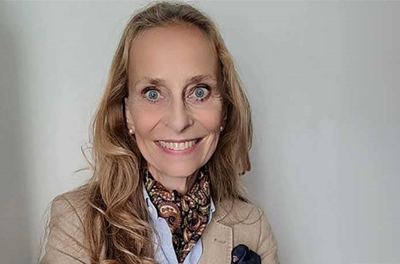On the Frontlines: What Auditors Can Learn From Octopuses
Blogs Ursula Schmidt, PHD, CCEP-Int. May 28, 2024

Imagine being a fish in a gigantic aquarium. There are murky waters, unexpected visitors (cleaning team? feeding staff? sea biologist? mermaid?), and lots of different species of all shapes, sizes, and colors around you — some you get along well with, some less.
And there are small fights about resources, about the best spots in the artificial wreckage, or about the proverbial skeleton at the bottom. In other words, there are unlimited encounters, many of which are conflict-bearing. Nevertheless, the paths of the aquarium inhabitants cross all the time. They are part of one big organization.
The life of an internal auditor isn’t much different. We often maneuver in the dark. There’s a fair share of the unexpected. We are surrounded by lots of “species,” that is, we typically work with everyone, across all hierarchies, from all business corners, and with different professional and cultural backgrounds. There are innumerable touchpoints or meetings — be it with executives, clients, colleagues, or project partners. Our role is special — but not everyone likes to see us splashing about undisturbed. There’s ample room for conflict due to expectations and perception gaps, miscommunication, our independence, different personalities, fights for the best “seat at the table,” or simply because not everyone likes to be audited. At times, we may feel not unlike an octopus: We are juggling in all directions but could easily do with another set of eight arms.
If you watched “Finding Dory” (released in 2016), you may remember Hank the octopus. Hank helps Dory, a blue tang suffering from short-term memory loss, track down her parents. Hank isn’t exactly a perfect role model. He is a bit selfish and anti-social. He has his own life story and fears. But he is smart, and he uses his many special skills for creative problem-solving and adapting to his situation or surroundings. If you love Hank, and you do a little research about octopuses, you might be astonished to learn about their high intelligence and the many character traits that help them cope extraordinarily well with lots of challenges — just like Hank.
Internal auditors can learn a lot from octopuses — in fact, much more than how to successfully juggle with lots of arms:
Situation-adapting: Octopuses are masters of mimicking and camouflaging. They can adapt their shape and color to almost every environment to ward off predators or escape dangerous situations. Whilst I don’t suggest internal auditors should be perpetually in defense mode, situation-adapting is one of the most important character traits we must develop. Context-sensing and becoming part of the crowd, be it with a client, the board, or with colleagues is a must for an auditor who wants to build relationships. We may always be an auditor with an independent mindset, just as Hank will always be an octopus doing his thing — but we must be flexible and adaptable to navigate the proverbial aquarium.
Creative problem-solving: The internal auditor’s life is characterized by the unknown. Our work is full of surprises, often requiring us to adapt quickly and solve issues on the spot. Here’s another amazing thing about octopuses: they are curious and very good at finding original, intelligent solutions to novel situations — like opening jars, navigating mazes, or escaping seemingly impossible situations. They observe, try, learn, and act. They do so by using their nine (yes, nine!) brains — simply speaking, they use all their senses to find the best solution. Auditors can learn a lot here: Problem-solving is more than “just IQ”: It’s also sounding out situations, sensing the moment, applying creativity, and acting accordingly.
Finding the right tools: If you think you have all the tools needed to navigate your next challenge, think again! Not only does a changing context require new tools, but one needs to be open to choosing the tools that will best serve in particular situations: Which data analytics tool? Which audit software? What AI options? Octopuses are pragmatic. They pick what is available to them to reach their goal — such as using a shell as armor or even carrying shells to a convenient spot to hide in later. There are lessons here too: Tools need to serve a purpose.
Like internal auditors, octopuses tend to be met with skepticism. Awkwardly enough, the reasons sound similar. They aren’t social (silo auditor, anyone?). Some mostly stay in the dark. They may invoke fear, sometimes fueled by old myths and legends. They are extremely curious. And sometimes they blast ink when sensing danger (ever menaced a client with audit committee escalation?).
This skepticism isn’t helpful. As internal auditors, if we want to safely navigate the murky waters of our organizational aquariums, we should work on shedding any justifications behind such doubts. Instead, we should learn from Hank how to make better use of our unique strengths by being adaptive, creative, and resourceful — and by overcoming our sometimes-awkward perception by being helpful. After all, your next client might be named Dory.


